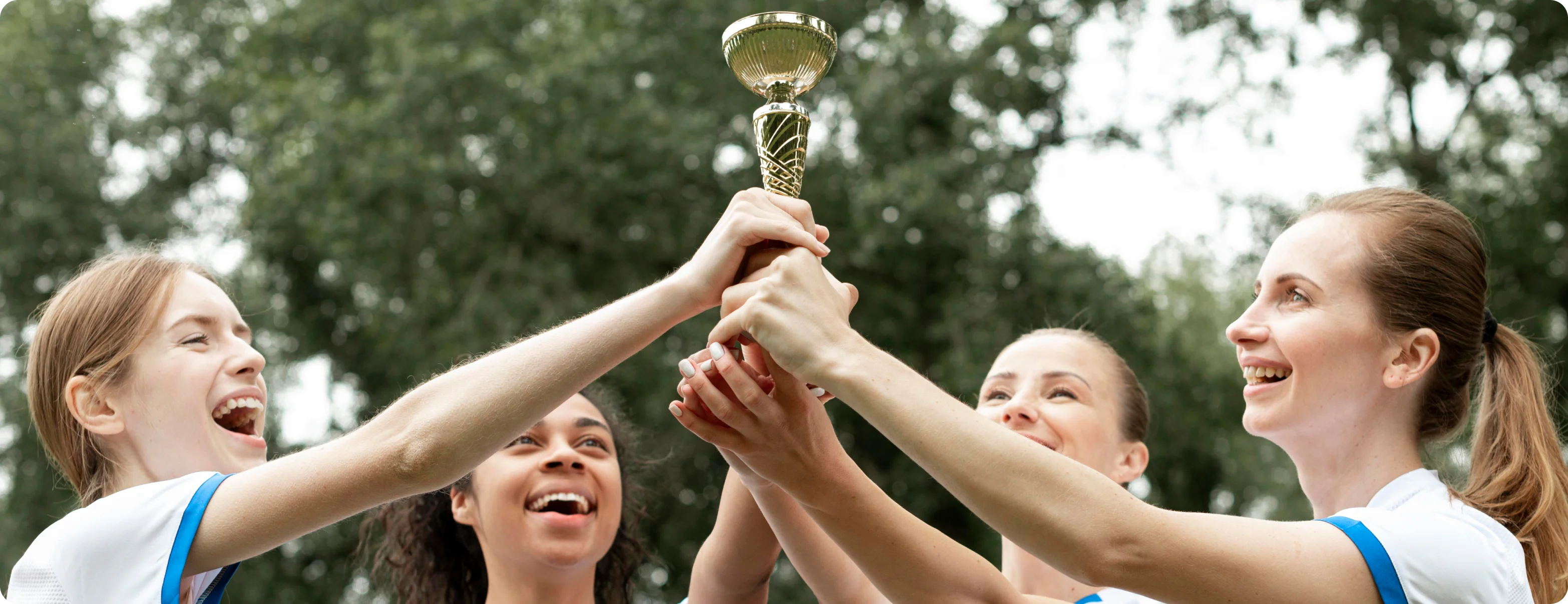End-of-Year Academic Awards: Are They Helping or Hurting Student Motivation?

Stephanie Tsapakis
|
Published on May 17, 2022 · 3 min read


Stephanie Tsapakis
|
Published on May 17, 2022 · 3 min read

With the 2021-2022 school year wrapping up, you may have noticed that across ages and grades, a lot of academic competitions and celebrations are happening. While these competitions and ceremonies are a fun way to motivate and engage some students, our children with varying degrees of learning differences might feel otherwise.
Imagine being the second grader with dyslexia who still hasn’t been able to memorize 100 sight words even though she’s been trying since last year, or the fifth grader who devours audiobooks but can’t decode the written text fast enough to read more than one chapter book a month.
There are always going to be kids who are motivated by competitions that reward speed or quantity - some of those kids might even be star athletes who have learning differences. But what about those kids who want to win as much as their classmates, but through no fault of their own, just can’t compete on the asme level?
"A systematic, multisensory, phonics-based approach that includes explicit instruction, practice, and feedback is the most effective way to teach children with dyslexia to read."
It’s not the same as when children lose at sports or other extracurricular activities because those things are voluntary - picked by the child because he or she is good at it or, at the very least, enjoys it.
There are different parenting (and teaching) philosophies about whether or not kids should experience losing because it's a part of life, and others who think everyone should receive recognition simply for participating. No matter where your own beliefs fall on this continuum, school is not voluntary and at times, there is forced competition for things that our kids would rather crawl under a rock than do in front their peers.
When an academic scenario is created in which students may be forced to put their areas of weakness on full display in front of their peers a lot of unpleasant feelings (and sometimes behaviors) may arise. Whether this happens because they have to participate or they opt out, they believe they are thereby signaling to their classmates that they weren't able to do the work.
Ideally, the educators who collaborate on such projects would build in opportunities for student choice and differentiation in regards to how students demonstrate what they've learned - but this isn't always the case for a variety of reasons. Furthermore, if the task simply relies on final outcomes rather than progress, our students with learning differences may feel they’ve accomplished nothing at all.
As these situations arise, different avenues will be taken. Some parents may choose to keep their child home from school that day to protect from embarrassment or heartbreak. Others may reach out to their child’s teacher to see what can be done so that their son or daughter can participate in some way that doesn’t make them seem any “different” from the other kids.
For older kids who have academic challenges, they may be able to shrug it off or act like they "forgot" to do the assignment when deep down, they lacked the confidence or skills to try.
The coping mechanisms will run the gamut but somehow at this time of year these scenarios will continue to pop up.
As adults we know that outside of our closest family and friends, other people's opinions of us really don't matter and anyway, people are too busy trying to make it through the day to worry about the details of our lives.
Kids don’t yet have this wisdom.
In general, they just want to be like everyone else - especially when it comes to academics.
If they're young, you can advocate for them. It can sometimes be as simple as reaching out to your child's teacher to discuss the project and what kind of support your child will need to be able to participate like their classmates. Some teachers may be more amenable than others, and if that's the case you may want to also work with your child's special education teacher.
If they're upper elementary and beyond, this is a good opportunity to start working on self-advocacy skills. When the assignment comes home, discuss with your child what they might find fun about it and what pieces will be challenging.
Encourage self-advocacy with your older children by having them first speak with their special education teacher to map out a plan for how tackle the assignment - sometimes that small group setting is all a kid needs to find their confidence and get started.
If the award is for something that due to their learning differences, could not have been possible for your child to win, it might be a huge confidence booster to find a special way to celebrate their progress at home with family.
Progress is progress, no matter how small and should in fact be celebrated!
Looking for personalized support for your child's learning journey?
Our tutoring and dyslexia intervention services are tailored to students with learning differences. Whether it's reading, writing, or other challenges, our team offers one-on-one guidance.
Start with a consultation!Answers to frequently asked questions
Academic competitions that emphasize speed or standard outcomes can make these students feel discouraged or excluded.
Not necessarily, while some thrive on competition, others may feel their abilities are undervalued when measured only by conventional benchmarks.
Parents can advocate for differentiated participation options or celebrate individual progress outside of traditional awards.
Yes, focus on individual effort, progress, and ways to help a child participate meaningfully rather than just win.
Encouraging student choice and differentiating how mastery is demonstrated can help students with learning differences feel included.
Stay updated with our latest blog posts.
Cart